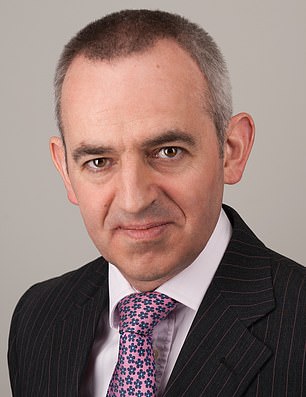My wife and I are 41, have two young children, aged 6 and 4, and we never considered inheritance tax to be an issue until the Budget attack on pensions.
Our house is worth around £1.2 million with an outstanding mortgage of £300,000 and between us we have around £100,000 in savings and investments.
My defined contribution workplace pension is currently worth around £300,000 and my wife has an old workplace pension worth around £10,000 and a Sipp worth around £40,000.
In our wills we leave everything to each other if one of us dies and in the terrible scenario where we both die, we would leave everything to the children.
As it was before the Budget, they would have been able to keep the house, our savings and our pensions without losing money in inheritance tax.
Would our children now lose 40 percent of our pensions because of the inheritance tax?
My rough pension projection is that if I continue to receive £1,000 a month towards my workplace pension and earn a 6 per cent annual return, then in a decade the fund would be worth £710,000.
If something terrible happened to me and my wife, would my 16 and 14 year old children now lose £284,000 of that amount in inheritance tax? How can this be fair?
Trapped: Those who accumulate a retirement pension and are unlucky and die prematurely could now find that their estate has an inheritance tax bill.
Ian Dyall, Estate Planning Specialist at Evelyn Partners, responds: The 2024 autumn budget announced the government’s intention to charge inheritance tax on most pensions paid to beneficiaries in the event of death.
Currently, if you die with unused funds in your defined contribution pension (unlike so-called final salary defined benefit schemes), it can be transferred inheritance tax free to a named beneficiary.
If you die before age 75, beneficiaries can also withdraw the money income tax-free, but if you die after age 75, they will pay taxes at their normal income tax rate on any money they withdraw.
From April 2027 this will change. Any unused defined contribution pension fund and any death-in-service lump sum of defined benefit pensions will be subject to inheritance tax.
Again, when the beneficiary withdraws the funds, they may have to pay income taxes depending on whether they die before age 75 or not.
Not all payments for deaths in service are included, only those linked to pensions, so people should check with their employer to see if their plans are covered by the new legislation.

Ian Dyall: Pensions now fall into IHT net
The method of payment of the liability is currently complicated but is subject to consultation.
The value of your unused pension or death-in-service lump sum will be added to the rest of your estate when calculating your inheritance tax liability.
However, that responsibility will be split proportionately: the pension provider will pay a portion of the pension directly to HMRC and the remainder will be paid by the executors of the estate.
This will involve much greater communication between the pension provider and the personal representatives of the deceased’s estate and is likely to increase the costs of administering the pension and cause delays before the pension can be distributed.
Applying this to your circumstances, you are right to think that under current law, if you and your wife died today, you would have no obligation to pay inheritance tax.
You each have a nil rate band of £325,000 and an additional residence nil rate band of £175,000 which can be used to pass your house on to your direct descendants, provided your total estate on death is worth less than £ 2 million.
If you do not use the first death benefits, perhaps because you leave everything to your wife, then the benefits are transferred to your wife so that she can use both her benefits and yours in the event of your death, for a total of £1 million (assuming she is not valued at more than £2 million at her death).
It’s worth noting that reliefs are now fixed until 2030, and even before the changes take your pensions into account, you’re right on the edge of having inheritance tax debt, with net assets worth £1m and total reliefs worth £1 million. Therefore, any growth in your non-pension assets is likely to trigger an inheritance tax liability.
If the new rules are introduced in their current form, then your pensions will become subject to inheritance tax at 40 per cent on your death, assuming they exceed your nil rate band allowances when added to your other assets.
For some people things can be even worse. If your pensions take your total wealth above £2m, then pension funds can also have your nil residency rate bands reduced too. This is not entirely clear in the budget briefing documents, but it appears to be the case.
Whether the proposed changes are fair or not is open to debate, but it is worth noting that being able to transfer your pensions tax-free is a relatively new phenomenon introduced at the same time as pension freedoms in April 2015.
Before that, if you died before age 75, there was a 55 per cent tax on unused pension funds if they were left to a non-dependent beneficiary. This was a tax on all unused pension funds, regardless of the rest of the pension holder’s wealth.
Currently, only about 6 percent of people are subject to inheritance tax. By taxing unused pension funds through inheritance tax, many people will not need to pay a tax on their pensions in the event of their death, although it will potentially still add complexity to the management of their estate.
What can people do about it?
Firstly, if your pension is drawn through your company, then you should ask the company to clarify which parts of any death benefit will potentially be subject to inheritance tax under the new rules. This may lead the company to structure its death service in a different way.
As you build your pension, you should consider the potential liability to pay inheritance tax when considering the rest of your planning.
Pensions remain very tax-efficient vehicles for income and capital gains tax, so the new legislation should not deter people from contributing to pensions.
Once your pensions are paid, you should consider whether you need all of the pension fund you have and whether you are likely to have any surplus funds in the event of your death.
There are several options to consider if you do not need all of the funds you have accumulated.
Options could include taking your tax-free cash and giving it away. As long as you live seven years, the money will be left out of your estate for inheritance tax.
You could take more income than you need from the pension and give it away or use it to fund an entire life insurance policy held in trust.
Any extra money you receive is likely to be covered by the “normal income expenses” exemption and therefore immediately exempt from inheritance tax.
There are other options and it is worth taking advice at times of change like this if you think you are likely to have liability.
Of course, the easiest option is to simply spend your pension. What would you spend your money on if everything was 40 percent off?
Some links in this article may be affiliate links. If you click on them, we may earn a small commission. That helps us fund This Is Money and keep it free to use. We do not write articles to promote products. We do not allow any commercial relationship to affect our editorial independence.


